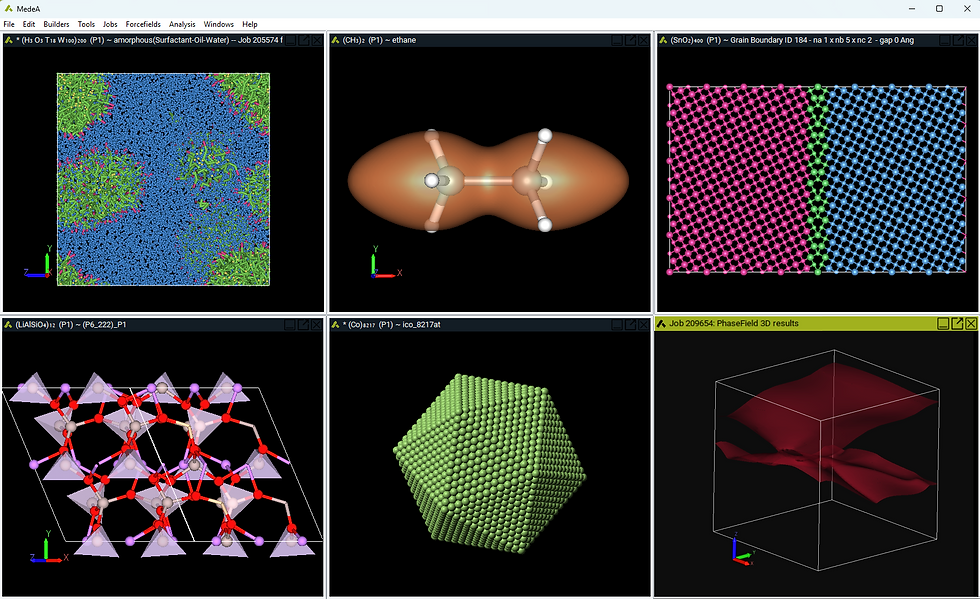MedeA 2.15 released
- Katherine Hollingsworth
- Jun 29, 2014
- 2 min read
What’s New in MedeA Version 2.15
MedeA 2.15 brings substantial new capabilities and features to the MedeA environment: P3C (Polymer Property Prediction using Correlation) now provides interactive property reporting which can be used during the construction of repeat units, InfoMaticA structural databases have been enhanced to reflect the latest updates to vendor databases, and the LAMMPS version employed by MedeA-LAMMPS has been updated to enable the use of a range of the latest LAMMPS developments and forcefield capabilities.
Extensive enhancements to the MedeA environment include support for IntelMPI 4.1 for improved compute server performance, a new Flowchart library, and improved support for fixed atoms in Clean and Simple Dynamics.
MedeA is the leading environment for Materials Design, Inc., modeling, and simulation for Windows and Linux environments.
MedeA 2.15 New Features
MedeA-LAMMPS:
Featuring the latest (February 2014, stable) version of the LAMMPS executable on all supported platforms
MedeA specific customizations (including updated minimizer, in-memory velocity auto-correlation function accumulation, and cohesive energy calculations)
MedeA-Electronics:
Performance improvements and general enhancements
Enhanced support for transport properties calculated with hybrid functionals
Fermi Surfaces and Transport Functions enhancements
Directional electronic masses
MedeA-VASP:
Enhancements for metaGGA band structure and density of states calculations
Optional creation of formatted WAVECAR for advanced applications
Support for explicit user supplied system charge
Enhanced operation and analysis of VASP stages in flowcharts
MedeA P3C: Polymer Property Prediction using Correlations:
Interactive property reporting, allowing rapid analysis of repeat unit properties
Enhanced Flowchart variable support for screening applications
MedeA PCFF+:
Enhanced CO2 parameters
Enhanced parameters for ethers and unsaturated hydrocarbons
Support for oxide parameters based on the published work of Sun and coworkers
MedeA-Infrastructure:
Secure JobServer communication using HyperText Transfer Protocol Secure (https)
Flowchart library supporting high throughput JobServer applications
Support for fixed atom groups in Clean, Simple Minimization, and Simple Dynamics
A broad range of installer updates and enhancements
Improved configuration of Windows files employed by the MedeA interface
Enhanced layer building options
Enhanced picking for certain graphics chip sets
Enhanced SQS system building
Updates for MOPAC: support for 64 bit servers, enhanced flowchart stage reporting, and thermodynamic function reports
Performance enhancements for the Amorphous Materials builder
MedeA-InfoMaticA:
Updated with the latest version of the ICSD database
MedeA-Gibbs:
Extensive updates to sorbate libraries
Extensive Anisotropic United Atom (AUA) forcefield updates



Comments